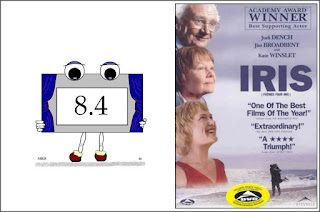Boyhood
Genre: coming-of-age
drama
With: Ellar Coltrane
(Mason Evans Jr.), Patricia Arquette (his mom Olivia), Lorelei Linklater (his
sister Samantha), Ethan Hawke (his dad Mason), Libby Villari (Grandma), Marco
Perella (Bill Welbrock), Jamie Howard (Mindy), Andrew Villarreal (Randy), Barbara
Chisholm (Carol), Angela Rawna (Professor Elena Douglas), Jenni Tooley (Annie),
Evie Thompson (Jill), Richard Andrew Jones (Grandpa Cliff), Karen Jones (Nana),
Brad Hawkins (Jim), Tom McTigue (Mr. Turlington), Zoe Graham (Sheena), Bill
Wise (Uncle Steve), Maximillian McNamara (Dalton), Jessi Mechler (Nicole)
Director: Richard
Linklater
Screenplay: Richard
Linklater
Release: 2014
Studio: IFC Productions,
Detour Filmproduction
Rating: R
MBiS
score:
8.5/10
Young People Need All That Time to Figure It Out... If They're Lucky!
QuickView
Story-line: BOYHOOD follows 6-year-old Mason, his sister and their divorced parents as they go about their lives from 2002 to 2014. That’s it… there’s nothing more to this movie!
Pluses: excellent acting
by Ellar Coltrane (as the free-spirited, intelligent and increasingly likeable
Mason), Lorelei Linklater (his sympathetic sister), Patricia Arquette (their well-meaning
but luckless mom) and an endearing Ethan Hawke, efficient direction, a sincere
and lively screenplay paced by natural dialogues, consistent production values,
pretty cinematography, sensible editing and a satisfying ending.
Minuses: none… but do
plan ahead because this movie is 165 minutes long.
Comments: BOYHOOD tells a familiar story and holds few surprises but never loses interest because of its accuracy and simple humanity. In a few words… it rings so true! Richard Linklater’s idea to spread out the film shoot over 12 years in order to let his characters breathe, evolve and grow older was quite astute, echoing Michael Apted’s well-known UP documentaries. What makes BOYHOOD so watchable is how it allows us to know, accept and even cherish its characters while they experience triumphs and setbacks like anyone would… with optimism, disappointment, confusion or resilience. Love and relationships, family dynamics, school and work issues, mentors and bad influences are covered wisely in this modest and worthy film. Enjoy!
MBiS
©
2022 – All rights reserved










